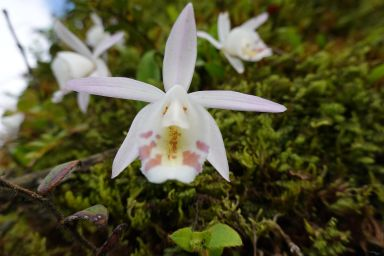
The Global Mountain Biodiversity Assessment (GMBA) is a platform for international and cross-disciplinary collaboration on the assessment, conservation, and sustainable management of mountain biodiversity.
GMBA follows five priorities: connecting scientists, developing tools and data infrastructures, co-creating knowledge, outreach, and capacity building.
Join the network!
Picture: Pleione hookeriana, Himalaya (Nepal)
Credits: Lotta Schultz
